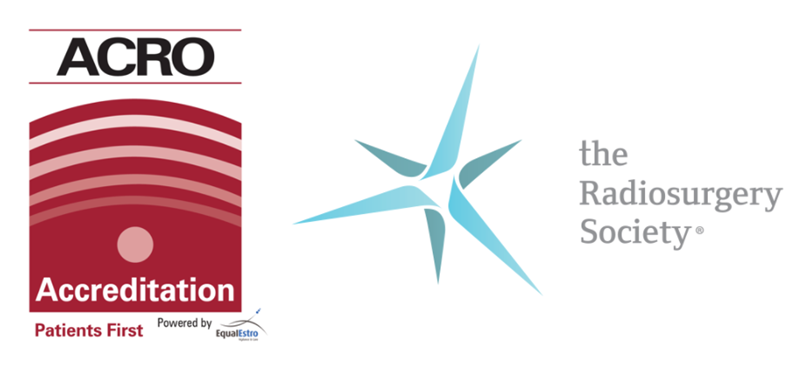Philadelphia CyberKnife Becomes First Center Awarded Stereotactic Radiotherapy Accreditation
 The American College of Radiation Oncology (ACRO) and the Radiosurgery Society (RSS) have awarded the first Distinction in Stereotactic Radiotherapy accreditation to Philadelphia CyberKnife, a service of Delaware County Memorial Hospital, a member of Crozer Health, and an Alliance Oncology facility. It was the first CyberKnife center in the Philadelphia region, opening in 2006.
The American College of Radiation Oncology (ACRO) and the Radiosurgery Society (RSS) have awarded the first Distinction in Stereotactic Radiotherapy accreditation to Philadelphia CyberKnife, a service of Delaware County Memorial Hospital, a member of Crozer Health, and an Alliance Oncology facility. It was the first CyberKnife center in the Philadelphia region, opening in 2006.
Recognizing the rapidly changing landscape of radiation therapy with exceedingly more radiation centers and patients receiving stereotactic radiosurgery (SRS) and stereotactic body radiotherapy (SBRT), the RSS and ACRO determined that a comprehensive accreditation program specific to SRS/SBRT clinical practice and physics quality assurance was necessary. In February 2021, the two organizations launched the Distinction in Stereotactic Radiotherapy Accreditation.
The Distinction in Stereotactic Radiotherapy program is the only SRS/SBRT-dedicated accreditation review by a professional medical society that focuses on practice standards, patient management, and medical physics aspects unique to SRS/SBRT treatment.
“ACRO Accreditation has partnered with the Radiosurgery Society to develop a ‘Distinction in Stereotactic Radiation Therapy’ to promote high-quality care for this specialized treatment modality and to recognize practices with particular expertise. It is therefore with great enthusiasm that we announce that Philadelphia Cyberknife has achieved this illustrious distinction,” said Jarek Hepel, MD, Medical Director for the ACRO Accreditation Program.
“We are honored to be the first center to receive the prestigious Distinction in Stereotactic Radiotherapy accreditation from ACRO and the RSS, having completed physics and medical chart reviews, in addition to the normal ACRO Accreditation process,” said Rachelle Lanciano, MD, Chair of Radiation Oncology, Crozer Health.
“Our doctors and staff are renowned in the Philadelphia Region in the field of SRS/SBRT, so this accreditation is a testament to the passion and expertise we bring to our work and our commitment to remaining at the forefront of cancer care for the patients we serve,” said John Lamond, MD, Medical Director of Philadelphia CyberKnife.
Michael Good, RN, Site Manager at Philadelphia CyberKnife, added, “We are thrilled to have achieved this distinction. Together, our team creates exceptional patient care, built on the foundations the Distinction in Stereotactic Radiotherapy recognizes in clinical expertise and quality assurance.”
The program was designed by professional peers with extensive experience treating patients with SRS/SBRT, with the aim to identify standards indicative of a quality practice in the field of SRS/SBRT. The Distinction in Stereotactic Radiotherapy program currently focuses on SRS/SBRT treatments within six disease sites: central nervous system (CNS), spine, liver, lung, pancreas, and prostate. Centers wishing to achieve the Distinction in Stereotactic Radiotherapy need to apply and complete the ACRO Accreditation Program for radiation oncology.
“Given the tremendous growth we’re seeing in the field of SRS/SBRT, we felt it was important to have an accreditation program that specifically addresses the treatment’s unique requirements," said Simon Lo, MB, ChB, FACR, FASTRO, Professor and Vice-Chair for Strategic Planning and Director of Stereotactic Body Radiotherapy (SBRT) in the Department of Radiation Oncology at University of Washington School of Medicine and Medical Director of the Distinction in Stereotactic Radiotherapy Program. “Not only were the criteria for the Distinction in Stereotactic Radiotherapy created by leading experts in SRS/SBRT, but it is also the professional experts with extensive SRS/SBRT experience in the various disease areas who are reviewing the cases, making this a highly specialized, creditable, and noteworthy designation.”
The review consists of a minimum of five charts with a minimum of two charts per disease site, and peer reviewers evaluating cases within their area of expertise. In addition to the medical chart review, a physics survey process was developed by medical physicists with research development backgrounds and clinical expertise in stereotactic radiotherapy using a wide range of delivery technologies. Areas of evaluation include machinery, quality assurance, staff and training, and dose constraints specific to the delivery of SRS and SBRT treatment.
“Unlike other Radiation Oncology accreditations, the special Distinction in Stereotactic Radiotherapy (SRT) is offered as an additional option of the ACRO Accreditation process for those clinics fully engaged and committed to SRT,” said Stanley H. Benedict, PhD, Professor and Vice-Chair of Clinical Physics, the University of California at Davis, Comprehensive Cancer Center. “The Distinction in SRT utilizes well-established recommendations, guidelines, and criteria specific to SRS/SBRT, including acceptance testing and commissioning of new technology, imaging and treatment planning protocols, and quality assurance practices. Acknowledgment of Quality Assurance and Commitment to Quality Improvement is the aim from the collaborative evaluations of the Distinction in SRT, which provides expert reviewers and disease site teams who understand the unique clinical and physics requirements of this important treatment approach.”
The Distinction in Stereotactic Radiotherapy is also being offered virtually, using an online process for reviewing medical charts. The virtual site visit process includes a pre-visit document review, video interviews of key personnel, virtual facility inspection, and detailed reviews of all quality metrics and all elements of the practice's quality assurance programs.